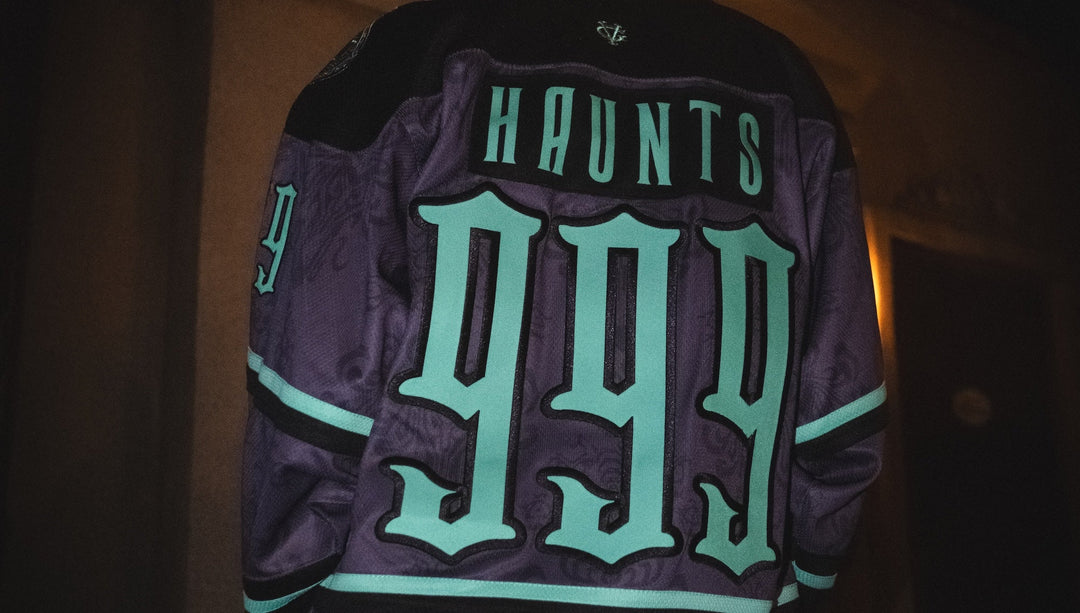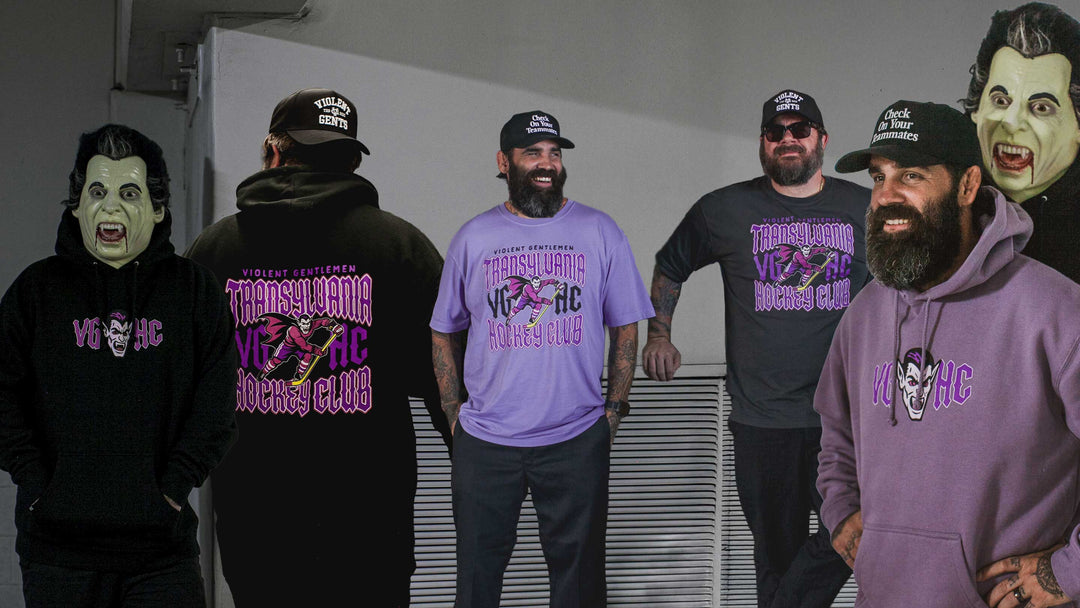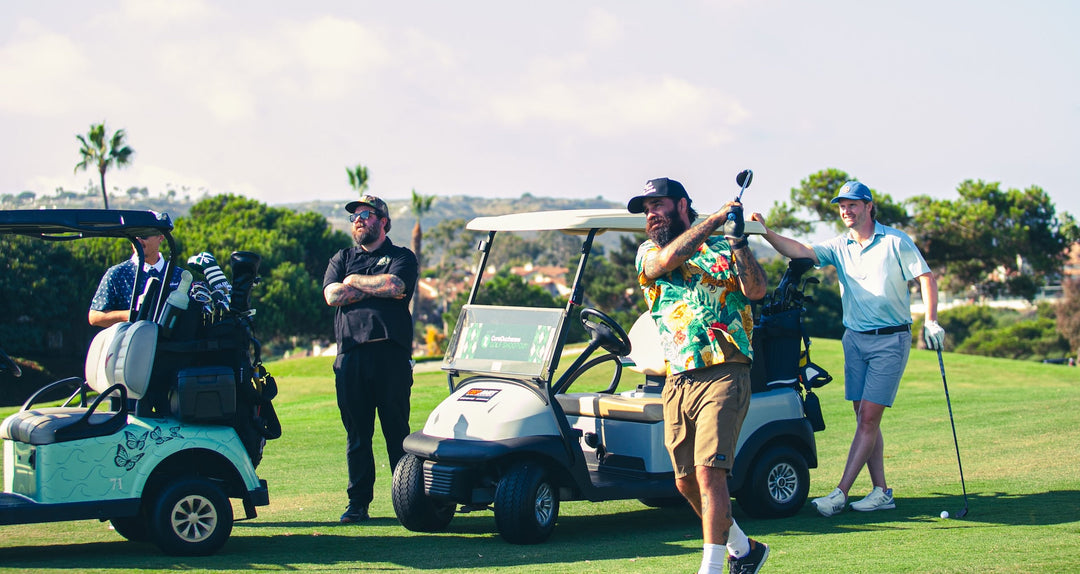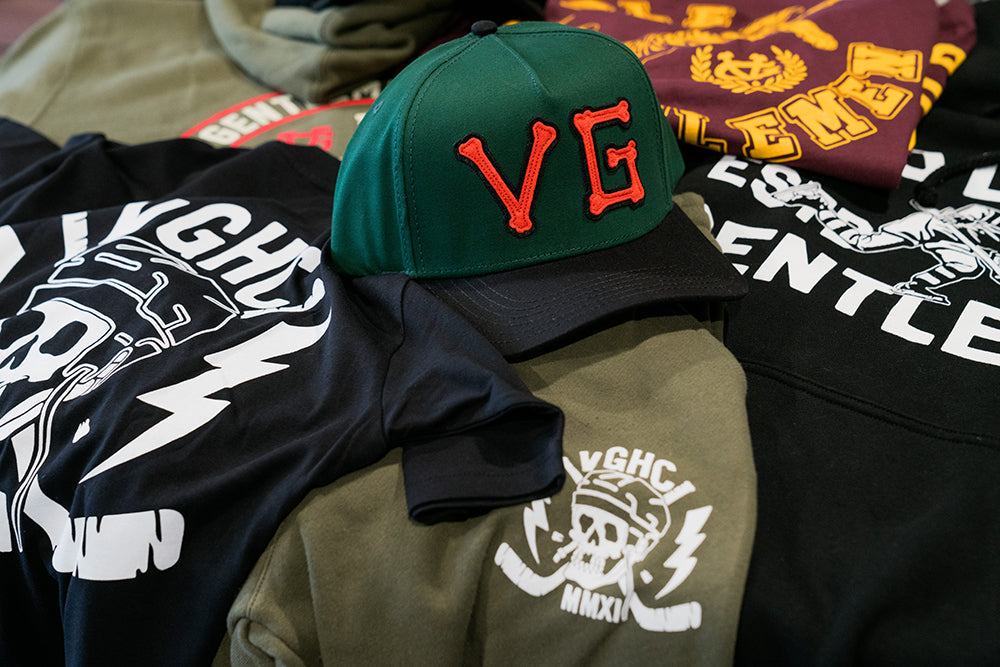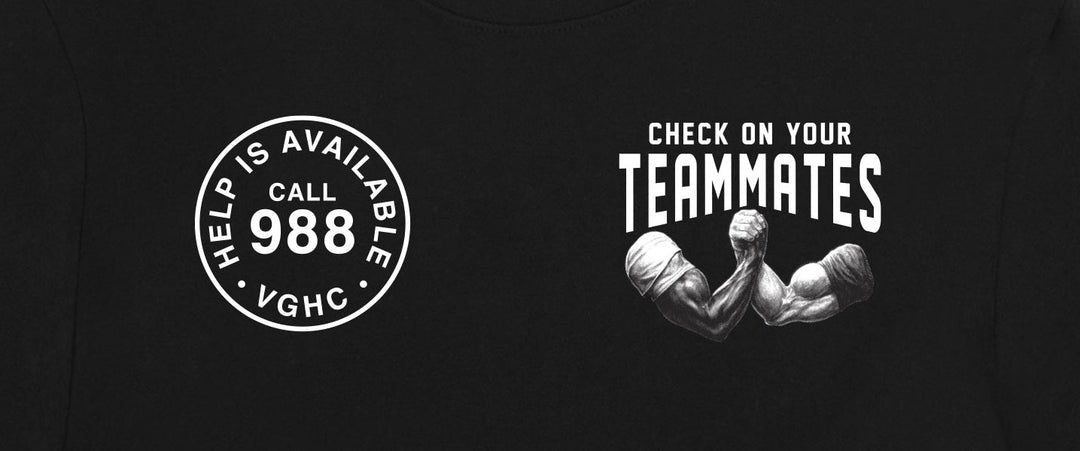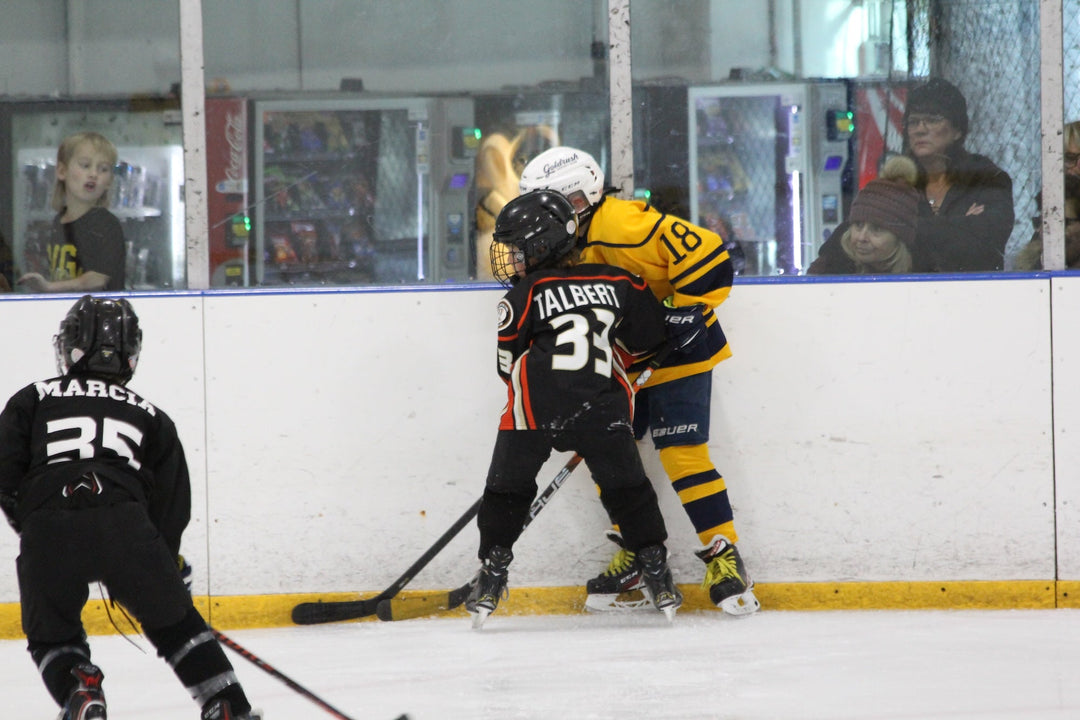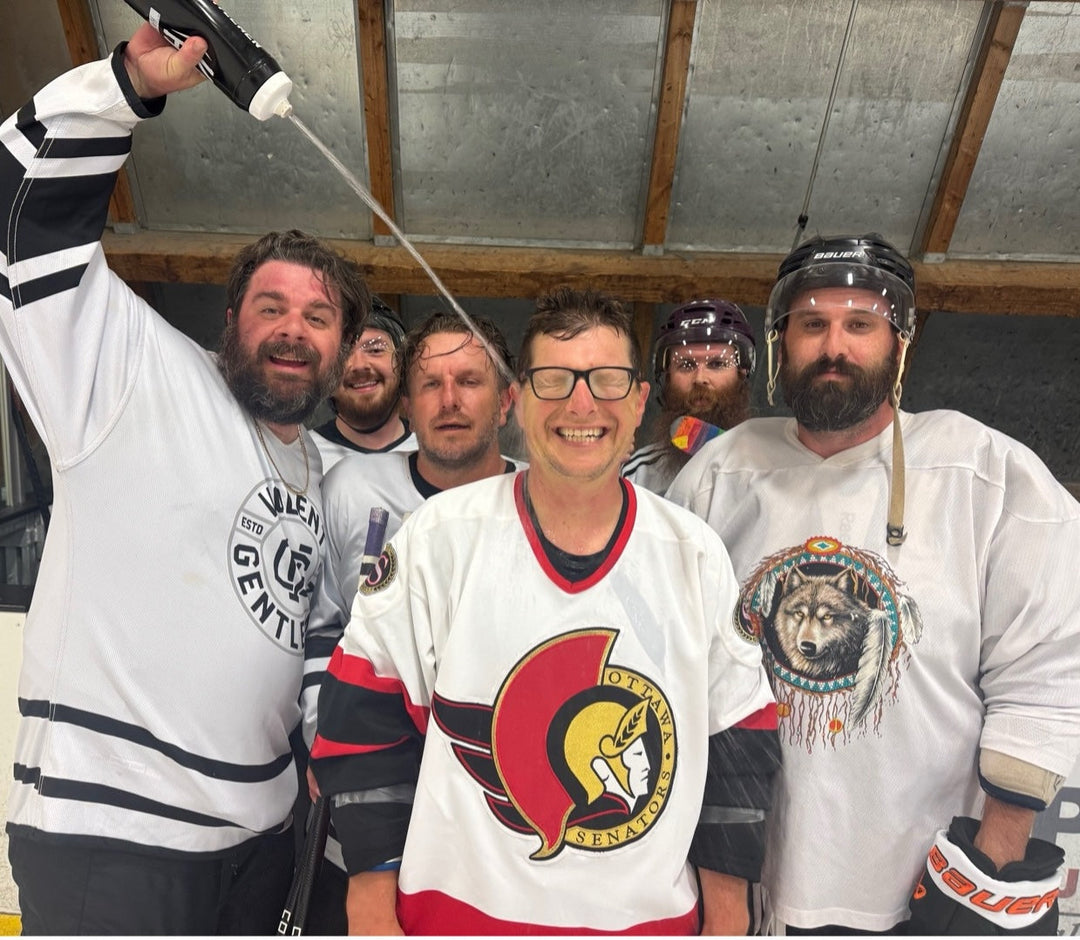Tales of Violent Gentlemen: Nate Thompson
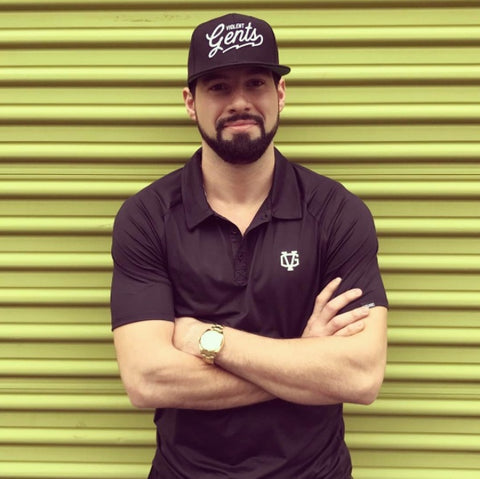
Nate Thompson is a warrior. He plays his game with an edge, and although he doesn’t fight as often as when he first broke into the league more than ten years ago, he can still throw his fists when he needs to.
Off the ice, he battles just as hard. Last year, he missed most of the regular season while he recovered from an Achilles’ tendon injury. With fierce training and determination, however, he returned to form and was an integral part of Anaheim’s playoff run to the Conference Final.
After spending the last three seasons with the Ducks, not far from Violent Gentlemen HQ, Thompson is heading north to play for the Ottawa Senators. Before Nate trades the sunshine of Southern California for Canadian winter, Violent Gents caught up with him to talk about his NHL experiences and his upcoming transition.
Violent Gentlemen: You’re among a handful of active NHL players who hail from Alaska. What was it like growing up in Anchorage?
Nate Thompson: It was a great place to grow up. With the winter, we had a lot of time to be outside and play at the outdoor rinks and on the ponds. I think that was one of the biggest things I remember about growing up and playing hockey in Alaska, is being able to skate outside for such long periods of time. I feel like I really improved as a player by doing that. We had a lot of pretty good players in the minor hockey system who came out of Anchorage, but we had to leave the state to get our real competition. If we played in Alaska we usually just beat everybody. Overall, being able to experience the outdoors, to fish and hunt and do all those things and play hockey, it was just a wholesome way to grow up.
VG: Alaska has an abundance of wildlife, and you’re an avid angler and hunter. What’s your best fishing story?
NT: I actually caught my first red salmon on a Snoopy pole. You know, one of those rods you get from a toy store. I was just sitting on the bank and I was fishing for a little bit. I was two or three years old at the time, so obviously my attention span was a little short. I laid my pole out on the rocks and ran off and did whatever two or three-year olds do at that age.
So, my Dad walks over to my Snoopy pole and sees that the rod was bent. Once he realized there was a fish on it, he grabbed it. The fish didn’t really realize it was hooked yet, it was just kind of swimming around, so he managed to get it to come in closer. Just before the Snoopy pole was about to snap, he tackled the fish right on top of the water and was able to push it up onto the bank. That’s how I caught my first fish. I was hooked.
VG: You’re from the north, but since 2009 you’ve been playing in warm climates of Tampa Bay and Anaheim, how will you cope with Canadian winter this season?
NT: Warm coats, hats, gloves, and boots! I think it’s going to be fun. I’ve been playing in warm weather for a while now, but I’m pretty excited to play in hockey weather. The holidays will feel more like the holidays. I’m also getting to play in a Canadian market, which is even better. I think it’s going to be a lot of fun and I don’t think the change in the culture and weather should be too difficult.
VG: What drew you to sign with the Senators this past summer?
NT: I think it was a number of things. Obviously, when a team is interested in you that’s always good. When a team wants you, you’re excited to go there. Knowing how well they did and seeing their success, they’re in a window to win right now so that’s exciting.
VG: You’ve been coached by Guy Boucher before when you were with the Lightning, how do you think it will be to adjust to his system in Ottawa?
NT: I’ve played with Guy Boucher when I was in Tampa, so I have that familiarity with him so that definitely helps. I think it will be an easy transition. I think playing for Guy before, knowing his system and what he expects, knowing how he coaches, that’s going to make it a lot easier for me. He already knows what type of player I am and what I can bring to the table. I think for me, I’m just going to try to be a complementary player and go in there and play my game and do the things that made me successful and kept me in the league for so long. I think that’s the biggest thing, just going in there and be myself and just try to help the team win.
VG: You sat out most of the 2016-17 regular season while you recovered from a ruptured Achilles’ tendon. What was the key for you to battle back from this serious injury?
NT: I’ve always been a guy who works hard and trains hard, but I don’t think I’ve ever trained that hard in my entire life. As soon as I got hurt, I was going to the gym right away, even when I was in a walking boot. I was really taking it to another level. I think that because I took it that seriously, I was able to stay on top of it. It was the hardest I ever trained and that hardest I’ve ever gone to get back. I think that helped me mentally too. Whenever you go through a serious injury like that, the mental part is even harder than the physical. I think it was just believing that I can come back and still be a really good player and be effective.
VG: Can you describe what the Violent Gentlemen means to you?
NT: I think Violent Gentlemen means more than fighting. Obviously, that’s a part of it, but I think you can use it in many different ways. You can use it in hockey and in many other sports. I think that’s the coolest thing about the brand and the logo, is that it has so many different meanings. You look at how we go out there and kill each other in a playoff series and then after we’re shaking hands. I think especially in hockey, that is exactly what Violent Gentlemen is.
VG: You don’t fight as often as when you first came into the league. How has your game changed since you’ve established yourself as a full-time NHL player?
NT: When I came up from the minors I fought more back then. I’m a guy that will still fight when I have to and stick up for teammates, I don’t mind it. But, I think it’s one of those things that as I got further into my career, I started to have more of an impact on the game. Whether it’s taking face-offs or killing penalties, I was being used up and down the lineup. I think the biggest thing for me was having that impact and being a player who was used in different situations, I think that that’s one of the reasons I started to fight less was because I was playing more. When you’re playing more minutes, you need to be on the ice.
VG: Who’s the toughest opponent you’ve fought?
NT: There’s a few that come to mind.

I fought Dan Carcillo, he was a tough guy. There’s certain guys who you fight against and they throw punches differently than others, and he’s one of those guys who throws heavy punches.

Fighting Tim Gleason was another one where I was punching way above my weight class. That was one where I was hoping I’d get in and get out pretty quickly.

Mike Brown was a guy who would hit you three or four times before you even threw a punch.

Another guy who was always ready to fight no matter what was Ian Laperrière. He just always showed up.
I respect all those guys, it’s not an easy job. I don’t consider myself as someone who fights all the time, but I know what it’s like. I have the utmost respect for all the guys who do it night in and night out. I think it’s so undervalued and still a huge part of our sport.
VG: You wouldn’t be cast as an enforcer, but you certainly have that edge to your game. Where do you see the role of that type of player in the game going in the coming years?
NT: I think it has been evolving the last few years. You see the guys that fight and the guys who are still playing regular shifts. You look at a guy like Matt Martin, he’s kind of the prototypical enforcer now. He’s a guy who will fight anybody but plays a lot of quality minutes and usually leads the league in hits every year. You have guys like that and that’s where I think the enforcer role is going. You’re not going to see a guy who’s going to play two or three minutes, fight, and be done for the night. We’re in a time now in the league where coaches are using all four lines to win, so every guy has to be able to play.
VG: Pound for pound, who’s the toughest player in the league?

NT: When I think of the toughest guy in the league I think of Ryan Reaves, I think everybody would probably agree. But pound for pound? I’m trying to think of a smaller guy who can chuck ‘em pretty good. I fought that Ferland kid from Calgary and he’s a pretty tough kid. He can chuck ‘em pretty good, so I’d put him in that category.
VG: Kyra Gaylor (@kyragaylor) wants to know what was your favourite moment as a member of the Anaheim Ducks?
NT: There’s a few really good ones but I think I’d have to go with when we were down 3-0 against Edmonton with three minutes left and came back to win it in double overtime. It’s hard to top that just because I don’t think that will ever be done again.
https://www.youtube.com/watch?v=Rv6NXJv37Y0
VG: Looking ahead to next season, what are you looking forward to most about joining the Ottawa Senators?
NT: I’m looking forward to being in Canada and playing for a Canadian team and getting to experience playing against Montreal and Toronto. Getting to experience Hockey Night in Canada on Saturdays, all those things you watch when you’re on the road in Canada. Just the novelty of it, you know, Don Cherry and Ron MacLean, all that stuff, those are the things I’m excited about. And obviously going to Ottawa and getting the chance to win. It’s the best of both worlds, you get to go to Canada and play in a great market and be on a good team.
VG: This one actually comes from Hammer at Violent Gents. Your roommate and best friend just finished an extensive training program. What inspired Eddie to become a professional good boy?
NT: I think what inspired him was that he gets more treats and he gets more praise. It’s like anything, you do a good job and you get rewarded.

Good boy, that Eddie.




